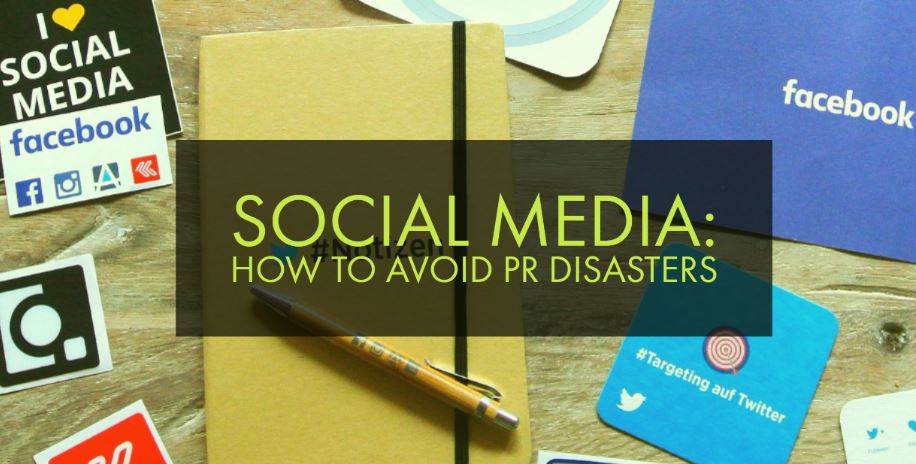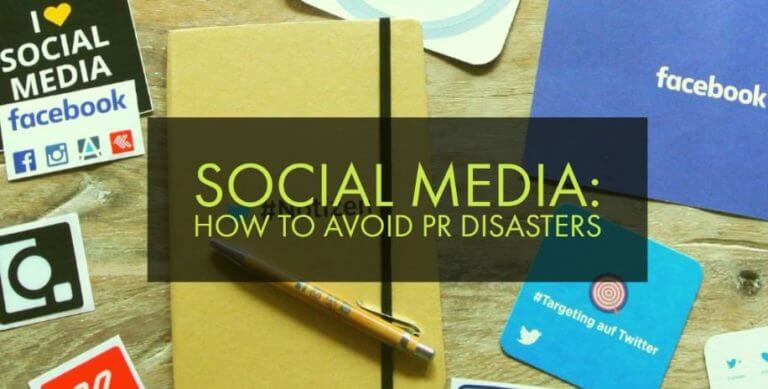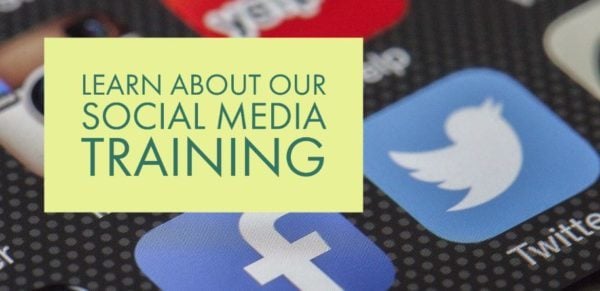
Social media is a great way to engage with your target audience, increase brand awareness and promote your products or services. However, it can be a double-edged sword. As powerful and as interactive as these platforms can be, social media blunders have also led to some of the biggest PR disasters to date.
Create a social media policy
If you don’t have a social media policy in place yet, draft one up now and ask everyone in the company to sign it. Even if some members of staff do not post on social media platforms belonging to the company, by asking them to sign the document, you are ensuring that they do not post anything defamatory or potentially harmful for the business on their personal account.
The social media policy you implement will be unique to your business, but it should include some basic principles that will protect the company:
- The beginning of the policy should state the purpose of the business’ social media platforms and the kind of image the business wants to project online.
- Secondly, state that confidential or sensitive information about the company or clients cannot be published on any social media account.
- It is also crucial that staff adhere to copyright rules by attributing original work to others where necessary.
- Most importantly, stress that it is paramount to always use good judgement when using social media.
- Everybody should refrain from posting anything that may be inflammatory or offensive in any way.
- If your employees are linked to your company on social media, ask them not to post anything provocative or inflammatory on their personal accounts too.
In 2011, an employee working for Chrysler’s media agency tweeted from the company account “I find it ironic that Detroit is known as #motorcity and yet no one here knows how to f#*!ing drive.” Needless to say, the employee was sacked and Chrysler’s reputation was damaged.
By putting a comprehensive social media policy in place, companies can ensure that employees understand what bad social media practice is and how to avoid causing PR disasters.
Finally, it is important to review regularly your policy and ask employees to sign updated versions when necessary. You may have forgotten to add an important point, the company may have faced a new difficulty on social media or it may simply be out of date. Whatever the case, ensure that your policy is relevant for your company and that all staff fully understand it.
How to handle a social media disaster
To avoid social media mishaps, monitor all of your accounts closely. This way, you will be able to help your with customers in real time. In addition to this, you will be able to spot and deal with any negative comments quickly and effectively.
When people post negative comments about your brand or service, it is important to follow a simple but effective complaints procedure in order to reduce the damage that they may cause:
- Do not ignore complaints, even if they seem trivial. Ignoring them will make the company appear uncaring and the unhappy customer may simply complain further, damaging the reputation of the company.
- Keep responses calm and dignified – angry responses just look unprofessional.
- Take every opportunity to move the complaint onto a private platform. If you respond quickly and mention that you’ve just emailed them about the problem directly, you are more likely to resolve the issue smoothly and what’s more, you will take it away from the public eye.
In 2008, passengers aboard a United Airlines plane spotted baggage handlers being rough with luggage, including a $3,500 Taylor guitar owned by professional singer-songwriter Dave Carroll. When the flight landed, the guitar was returned to the musician, but it had been destroyed.
After complaining, Carroll created a YouTube channel where he released a series of tongue-in-cheek videos called “United Breaks Guitars.” Eventually, United Airlines relented and reimbursed him for his guitar.
{{cta(‘1c847881-48ed-4f63-860c-a94b200bde8a’)}}
But at this point, damage had already been done – both to the guitar and the company’s reputation. This example shows why it is important to respond to complaints quickly, so that the situation does not escalate.
Picking the right people for the job
It’s important that only responsible, experienced in-house employees or agencies manage your business’ social media platforms. They should fully understand the company social media policy, complaints procedure and general best practice, as well as the brand personality and tone of voice.
When Hurricane Sandy hit America and the Caribbean Islands in 2012, at least 233 people were killed and thousands of homes were destroyed. This is why it was highly insensitive when GAP tweeted “All impacted by #Sandy, stay safe! We’ll be doing lots of gap.com shopping today. How about you?”
This social media blunder is a great example of why only responsible, fully-trained individuals who have good judgement should be tasked with controlling a business’ social media accounts.
Get the most out of your social media platforms
It may seem like your social media accounts are ticking time bombs that could explode with complaints and disasters at any moment. But don’t panic just yet – if you follow our simple advice, your accounts will be as engaging, useful and foolproof as they can be.
Download our free press release template
Avoid a PR disaster and download our simple template. Never worry about a journalist ignoring your news again, just enter your details in the form below and we’ll email it over to you:


